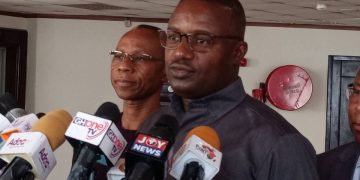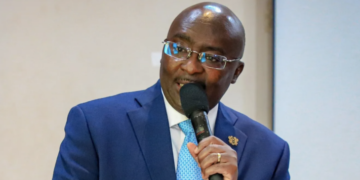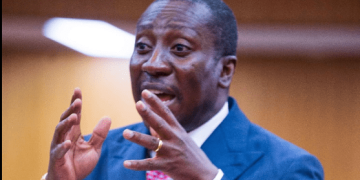Minister for Lands and Natural Resources, Samuel Abu Jinapor, has raised scepticism over the opposition National Democratic Congress (NDC)’s proposal to implement a 24-hour economy.
Jinapor questioned the feasibility of the NDC’s 24-hour economy and referred to the party’s previous governance period from 2013 to 2017, during which, he argues, they failed to sustain even a basic day-time economy.
He was speaking at the New Patriotic Party (NPP) parliamentary primary in the Damongo constituency during which he was acclaimed as the ruling party’s candidate for the 2024 parliamentary elections.
No other person contested Abu Jinapor in the Damongo constituency.
“Our friends the NDC have been around for so long, yet they’ve never been able to make any substantive policy proposals to the Ghanaian people,” Jinapor stated, stressing his doubts about the opposition’s capacity to deliver on their promises.
According to him, out of the blue, the NDC are claiming a 24-hour economy, however, when asked what the 24-hour economy entails, they only respond, ‘Jack Toronto.”’
“They are not able to explain it and sometimes they say it will mean Ghanaians will have an economy not by day alone but also by night,” he said.
He lambasted the NDC’s lack of clarity on the 24-hour economy concept, suggesting that their proposals are vague and unconvincing.
Jinapor recalled the challenges faced by businesses and workers during the NDC’s tenure, a period marked by erratic power supply, commonly referred to as ‘dumsor’.
“They subjected this country to dumsor, and therefore, even in the day, tailors could not work, welders, carpenters, teachers, and millions of Ghanaians had no economy to speak of, not just at night, but also during the day,” he stressed.
The Land Minister shed light on the difficulties of small-scale enterprises that were forced to close due to the inability to operate without a reliable power supply during the day.
“They did not have a 12-hour economy, they did not have a day economy,” Jinapor argued, questioning how the NDC plans to establish a round-the-clock economic environment given their past performance.



















































































